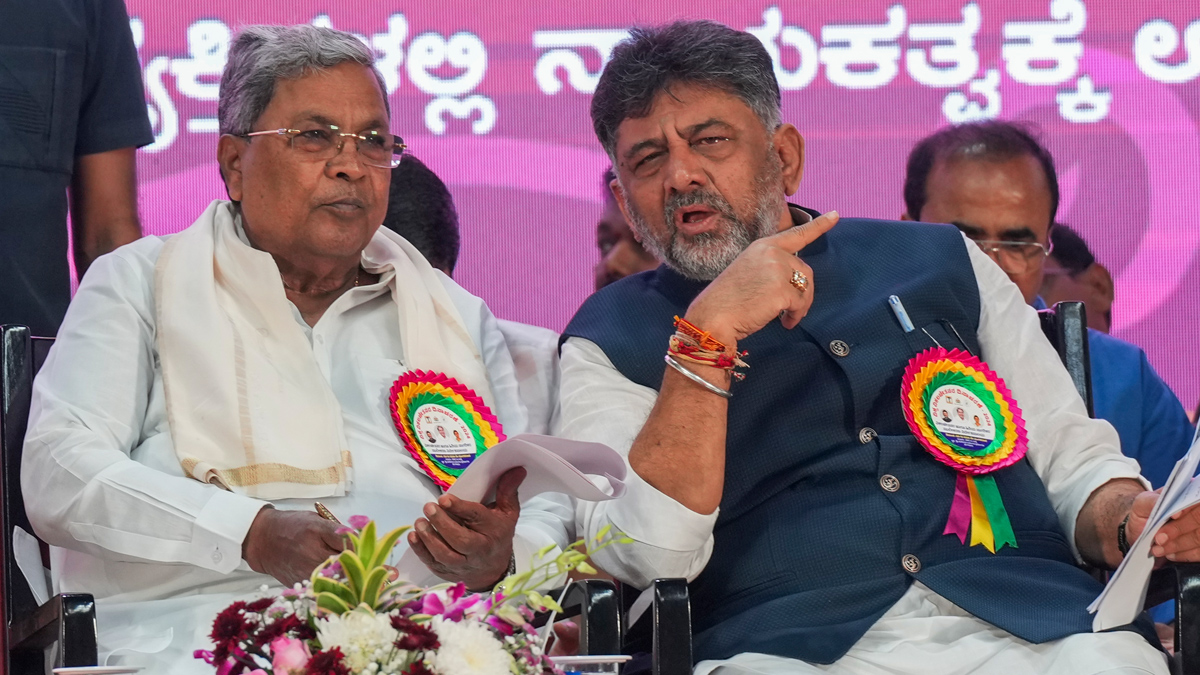Karnataka government’s fresh 'caste census' could face many roadblocks

The Karnataka government plans to go ahead with its independent caste survey, even as the Centre notified its intent to carry out the census of the country starting March 2027.
Chief Minister Siddaramaiah, clarifying on the proposed caste survey in the state, said, "The Centre will be taking a count of the different caste groups in the Census 2027, and the process would begin only in March 2027. But our caste census will not just enumerate the different caste groups but will also review their socio-economic and educational status. This is to ensure social justice for every community. Also, we will complete the survey within 90 days after the Commission takes up the survey."
The state government is filling up the vacancies in the state's Backward Classes Commission headed by former advocate general Madhusudan R. Naik to kickstart the survey. However, the move has not enthused a large section of the Congress's traditional voters, who are demanding the implementation of the old 'caste census', which was carried out at a cost of Rs 165 crore in 2015.
The Congress government had to scrap the earlier survey (H. Kantharaju Commission report) after the Congress high command called for a fresh 'caste census' last week, citing the redundancy of the 10-year-old report. And the old survey had been strongly opposed by some politically dominant communities like Vokkaligas and Lingayats, who had alleged the survey was "unscientific" and "incomplete".
Interestingly, the survey findings were a constant source of debate as the Opposition BJP and the JDS and many within the ruling Congress members, including deputy chief minister D.K. Shivakumar (Vokkaliga), suspected that some communities had been "undercounted" and it would affect their political clout and representation. They had sought a fresh survey. But now, the move to conduct a fresh survey has upset the 'Ahinda' (Kannada acronym for minorities, backward classes and Dalits) communities that have been strongly backing the Congress party and Siddaramaiah, who has fashioned his political career on the Ahinda politics.
The Kantharaju Commission (later revised by the K. Jayaprakash Hegde Commission in 2024) apparently favours the OBCs.
K. Ramachandrappa, president of the Shoshita Vargagala Maha Okkoota, an umbrella organisation for marginalised communities, said, "We demand that the Kantharaju Commission report be implemented. The government says that the survey needs to be conducted afresh every 10 years and also review the status of the communities. But this old report was not even implemented. So what are they reviewing? We will launch a statewide protest opposing a fresh survey.
Siddaramaiah, who had hoped to approve the old caste survey despite stiff resistance from the opposition BJP and the JDS and from his own party and cabinet colleagues, defended the decision for a fresh survey, saying, "The Section 11(1) of the Karnataka State Commission for Backward Classes Act, 1995, mandates a fresh survey every ten years to assess and update the list of socially and educationally backward communities. Since the last survey was conducted in 2015, the data is now ten years old, and the existing report is no longer legally valid. Population and social indicators change significantly in a decade."
The BJP alleged that the Siddaramaiah government had only made false promises and was misleading the backward classes.
"Siddaramaiah has wasted Rs 165 crore of the taxpayers' money.
"In the last two years, the Siddaramaiah government announced Rs 300 crore for the boards and corporations under the Backward Classes and Social Welfare departments but released only Rs 170 crore. The previous BJP government had released Rs 546 crore as funds to these boards and encouraged self-employment and made the youth self-reliant. But Siddaramaiah chose to put in money into guarantees," mocked state BJP OBC Morcha president Raghu Kautilya.
The state survey is bound to face many challenges that could delay the process, the first being the trained enumerators.
The Census 2027, the first nationwide (140 crore population) caste enumeration since 1931, will be held in two phases (from March 2027 and October 2027), with the houselisting operation and population enumeration being carried out by 34 lakh enumerators and supervisors, along with 1.3 lakh Census functionaries.
The Kantharaju Commission in the state in 2015 had deployed 1.8 crore enumerators (1.3 crore were school teachers) for the 50-day survey. But this time, a fresh survey will have to wait till the summer vacation (April-May 2026) as the schools have reopened and the teachers cannot be diverted for non-academic work during the school days, as per the Right to Education Act 2009. Also, the nature of enumeration involving data points will pose a tough challenge to the government in the absence of teachers, say education experts.
India